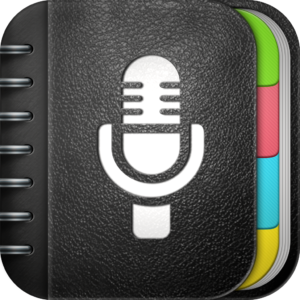“A doctor who cannot take a good history and a patient who cannot give one are in danger of giving and receiving bad treatment.”
– Anonymous
Doctors are not typically known for their listening skills; however, what you might not realize is that patients are considered poor listeners too. A Consumer Reports survey asked 660 primary-care physicians about their patient challenges and found that 37% of doctors believed patients’ not following advice affected their ability to provide optimal care.
So, we find ourselves in a pickle. Neither doctors nor patients feel they are being listened to, which means there is a breakdown in healthy communication that could lead to poor care, service, and diagnosis.
In Part 1 of How to Get Your Doctor to Listen to You, I focus on the patient side of the interaction and discuss the top 2 strategies that you can easily start doing to improve your relationship with your doctor and get the most out of your medical appointment.
1. Follow Directions
Let me start with an analogy. As a teacher, I often get students who come to me and say they don’t understand a concept or an assignment. At this point, I typically ask them three questions:
- Did you read the book?
- Were you in class the day we went over that topic?
- Did you look at the instructions?
Often, the answer to at least one of these questions will be “no.” If that is the case, I will tell them to go read the book, get notes from someone in class, or go read the assignment and come back once finished if they still have questions. They rarely come back with questions.
My point here is that as a teacher, I am not going to take seriously the student who didn’t do what I originally asked of them. And the same is true for the doctor and patient: Why will the doctor take you seriously if you do not do what they asked you to do?
So, the first step to improve your interactions with your doctor is to do your homework. If you do what they ask, they will be more likely to listen to you, especially if your symptoms continue.
For example, I have had chronic hip pain on and off for three years, and the past six months have been especially painful. My primary-care doctor referred me to an orthopedic (i.e. muscle, bone, and joint) doctor. At my first visit he really didn’t seem interested in what I had to say and just referred me to physical therapy (PT), in spite of the fact that I told him I did that before without improvement. He also said I didn’t need to follow up with him. I was annoyed to say the least, but did as I was told and made consistent PT appointments for the next several months.
As I suspected, PT did not help my ailment; however, I did gain an ally. My physical therapist happened to have had a similar issue himself, so he took my symptoms more seriously and when I didn’t improve, he advocated for me. He requested a hip specialist look at my charts, x-rays, and MRI, and when I returned to the orthopedic doctor, I could tell he was much more interested in what I had to say. Instead of me saying, “This hurts” or, “I searched this symptom online and…” I was able to say, “The physical therapist YOU sent me to wanted me to show you these three specific things that concern him.” He listened well at that appointment.
The point is even though I didn’t think PT would help, by doing it my doctor could check off that diagnosis (under-active and over-active muscles) and start looking elsewhere. But like in the student-teacher analogy, until I did what he advised, he would continue to believe it was my lack of following directions that prolonged my condition, rather than there being a flaw in his original recommendation.
2. Take Detailed Notes
Did you know that approximately 50% of what you hear is immediately forgotten? That is a troubling statistic that could have major consequences on your ability to follow your doctor’s orders. Add to that the fact that you are probably not feeling well (hence the doctor’s appointment) and your ability to listen and remember could be even worse.
So, to help you better listen to your doctor be sure to take detailed notes during the appointment. This is a proven strategy to help your memory (which is why students are encouraged to take notes in class). Below are 3 options to help you accomplish this:
a. Take notes during your appointment
I suggest taking your own notes, rather than asking your doctor to write things down for you. First, you may not understand their handwriting. Second, they’re notes might not make sense or have enough detail for you to remember what they meant. Writing notes yourself will ensure you understand what you meant later.
To help you, I have created a free checklist for you to download and take with you to your next appointment. It has space for you to write down instructions, as well as space to write any questions you might have for the doctor before the appointment begins.
If you feel you need more space to write, get a notebook or legal pad that can be dedicated to your doctor appointment notes. Be sure to get in the habit of taking it with you to all your appointments.
Another alternative is simple taking your computer or ipad/tablet in with you if you prefer typing over writing.
b. Audio record your appointment
This option is good for all to consider, but will be especially useful to you if you don’t have the ability to write your own notes. For example, if you have arthritis, then writing quick notes by hand is not a good option for you.
Instead, ask your doctor if he/she would mind if you recorded the appointment, or at least if they would record their specific instructions for you to take home. This can also be used with nurses or assistants who may be giving you extra information as well.
If you do not have a smart phone, I suggest investing in a small voice recorder.
 I like this recorder that can be found on Amazon because:
I like this recorder that can be found on Amazon because:
- It is inexpensive compared to others listed
- It has a rechargeable battery
- You can upload files to a computer if you wish
- And it comes with a cable to connect to your land line, so if you get a call from your doctor’s office about test results or follow-up information, you can record that too
If you have an iphone, ipad, or ipod touch, I suggest the Super Notes app.
I have used this myself and found it easy to operate and it picked up our voices well. Start with the free version, which lets you record 4 notes. If you like it, then you can upgrade for $2.99 to the paid version. Both versions let you:
versions let you:
- Download recordings to your computer
- Export to Dropbox
- Email yourself or someone else (Ex. another doctor)
- Add photos to a recording (Ex. a picture of your swollen hand that you made the appointment for)
c. Bring someone with you
In addition to options “a” or “b” you can also bring someone with you to your appointments. This could be a friend or relative, but just be sure it is someone you are comfortable talking openly in front of about your medical issue.
This person can act as your assistant:
- Have them take notes for you
- Give them a list of the questions you want to ask. That way you can be sure none are forgotten
- They can ask additional questions that maybe you didn’t think to ask
- They can advocate for you and the medical care you need
- They can help you remember what the doctor said after you go home
Summary
When someone doesn’t listen to us, we feel disrespected and are then less likely to listen or be respectful back. Listening is a two-way street, and if we want our doctors to listen to us, then we have to teach them how to do it by openly and seriously listening to them.
By taking detailed notes of what your doctor says and actually doing everything they ask you to do, they will be more likely to take you and your health seriously because you are taking your health seriously. And if all goes well, you will ultimately earn an “H” for healthy.
Stay tuned for Part 2, which will include more tips and strategies to improve your doctor-patient communication.
Do you have examples or tips of your own? Share them below!
I’m sure there are just as many doctors that do not feel their advice is being heard, as patients that believe their doctors are not truly listening.
As an example, I imagine there are countless doctors recommending their patients simply “lose weight” or “stop smoking” to help with various health issues. How many patients come back having not achieved that advice? They didn’t heed their doctor’s advice. They didn’t listen to their doctors. No one is listening…
But obviously, it’s more complicated than that with many such recommendations our doctors give us, and our doctors have to know that on some level.
So how can our doctors communicate and offer concrete suggestions and better guidance to get us to take real step towards healthier lifestyles?
Hi Megan! I totally agree with you; this is complicated stuff. I think doctors will begin to provide better concrete suggestions when patients begin asking more questions when they don’t understand directions or wish to have more clarification. It’s counter-intuitive, but being a good listener also involves talking and making sure that what you believe you heard is what the doctor actually meant. Doctors could also provide more resources to achieve goals, as well as setting realistic goals with their patients. For example, instead of just saying, “you need to lose 30 pounds,” a doctor could say, “I want you to adjust your diet. Let’s start with cutting your sugar intake in half, and increasing your vegetable intake to three servings per day. Also, I want you to walk for 15-20 minutes every day. Let’s make it a goal to have you lose 5 pounds every month for the next 6 months. Come back in one month so we can check your progress.” This should also be a negotiation with the patient. Doctors need to ask patients if they will realistically do what’s being asked of them. If the answer is ‘no’ then the directions should be revised until it is satisfactory to the doctor, and realistic to the patient. Thanks for the comment!